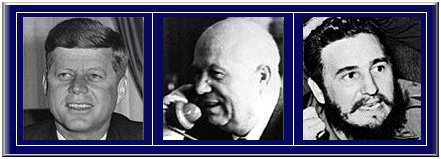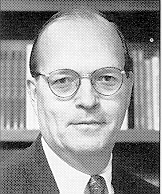
Fulgencio Batista Y Zaldivar
Cuba Before Castro Cuba, discovered by Christopher Columbus in 1492, served as a port for the Spanish fleet was populated mainly by Haiti slaves. America’s battle for independence in 1776 spurred resentment towards the British occupation. Cuba eventually became major sugar producer and slave trader. Rise in economic and social status introduced new technologies and promoted capitalism. The Colony became increasingly dissatisfied with repressive Spanish rule and became less dependent on mother country. The United States then became a leading trading partner of Cuba and due to the weak Spanish government; the people admired the American people for their government and their sense of freedom. The Ten Years’ War promised the Cubans of independence, which the Spanish did not fulfill with the mobilization of troops into the island nation; however, they came to terms with the abolition of slavery. American influence in Cuba increased, controlling the sugar industry, yet the American-Cuban relationship increased concentration on sugar production. Cuba suffered greatly from the depression, leading to a revolutionary movement, headed by Jose Marti. After achieving independence, Cuba adopted American traditions such as educational system and free elections. Tomas Estrada Palma was the first to be elected president of Cuba. Palma reigns a period of political instability whereas forces the Americans to further intervene in the government.
Revolts against foreign domination leads to the rise of the liberal party in 1924 headed Gerardo Machado y Morales, whom promoted reforms such as public works and the reparations of economic woes. He ruled as a tyrant. Fulgencio Batista Y Zaldivar comes to power in 1952 after the Revolution of 1933. As the cycle continues, revolutionary groups plotted to overthrow his reign. Fidel Castro was among the revolutionaries that attempted to bring Batista’s power to an end, yet failed and was imprisoned.
 Castro Rises to Power
Castro Rises to Power
Castro comes to power after revolution rebel leader Fidel Castro and his revolutionaries were pardoned as political prisoners in Cuba in May of 1955. Castro and his followers headed to Mexico to overthrow the Cuban dictator Fulgencio Batista Y Zaldivar, who rule was marked by unconcealed corruption, police domination, and fraud.
Castro and his 81 followers returned to eastern Cuba by sea loaded with arms and ammunition, only to face Batista's forces where many refugees were able to escaped to the Sierra Maestra mountain range in Oriente province in 1956. From their mountain stronghold, Castro carried out a guerilla campaign, unstoppable by the army or the police forces for the two proceeding years.
Castro's guerilla bands increased by the hundreds, raiding military facilities and kidnapping 38 American civilians in 1957 yet released them as the tensions from the US government rose. Castro called fro "total war" against Batista's regime, and took the offensive moving out of the mountains in 1958. The rebels seized Santa Clara, the capital of Las Villas province, on December 31, 1958 after Ernesto "Che" Guevara, Castro's comrade-in-arms, had captured a train loaded with weapons at Santa Clara. Batista fled to the Dominican Republic on January 1, 1959, fearful of the outcome of the revolution, leaving Cuba in the hands of a three-man ruling party. The people welcomed Castro when he led his motley columns into Havana, Cuba's capital, the days proceeding Batista’s flee. The army held no oppositions against the rebel forces yet rather they welcomed them as well. Gradually Cuba was transformed into a communist state supported by the Soviet Union with Castro premiere of the provisional government.

The Cuban Missile Crisis
The Soviet Union sends Anastas Ivanovich Mikoyan, whom upheld business contacts in the US, to the states as a guest of the Russian ambassador. Castro and Mikoyan established diplomatic relations in May of 1960. United States had cut off and obligated an economic embargo on the island so the Soviets would be the provider of massive oil shipment yet Russia was limited overseas shipping capabilities. Consequently, Russia orders for extra oil tankers from capitalist Italy, which angered the US upon hearing that the capitalist country would aid a communist country. Castro made socialist reforms such as naturalization of businesses and collectivism of agriculture, which instilled his fellow rebels in Cuba. By the early 1960’s, Castro has publicly endorsed Communism. Cuba was dependent on military and economic aid as time progresses with the aid of the Soviet Union. Russia was Cuba's trading partner, which alerted the American government of Cuba’s success to be an example of successful socialism, and model for other countries to revert to socialist forms of government and promote anti-American propaganda. On October 14th, 1962, U.S. spy planes passes over Cuba over a Soviet-managed construction and spotted a wide range ballistic missiles.
President Kennedy meets with his cabinet, and announced a naval blockade to prevent Russian ships carrying weapons to enter into Cuba on the 22 of October. US missiles were stationed in Italy, Turkey as well as West Germany, pointed towards motherland Russia thus they believed installing missiles in Cuba was a great defense. The Cuban missiles were not capable of being neutralized to prevent U.S. invasions. The crisis was the fright of a world war and even nuclear war. President Kennedy was pressured to use force against Cuba, to the extent that he feels threatened of being overthrown by his own military. The Untied States demanded the Soviet Union to dismantle the missiles, which the Russian agreed under the condition that the US promised not to invade Cuba.
American U-2 spy plane was shot down under the orders of Castro during the inspection which spurred negative propaganda towards the Cubans and the Soviets. Relations with Cuba and Russia began to worsen for Castro viewed the dismantling of the missiles as a lost for the Soviet Union. Khrushchev wrote Castro expressing that Cuba was now a safe socialist country post with no such threats of invasion. Castro then focused on revamping the agricultural system in Cuba, which suffered greatly due to the blockade, aiming to dominate the international sugar market with modern machinery and technology. The Cuban missile crisis served as an example of the possibility of a nuclear war yet it also allowed interaction between opposing systems of government that were both seeking to expand their influence on third world countries. Cuba is free from invasions whereas the people of the United States saw this as their own victory with the removal of the nuclear threat.
Modern Cuba
After the collapse of communism in Eastern Europe and the former Soviet Union, the government took a more critical look at the socio-economic and political system that has prevailed in Cuba for more than thirty-five years.
Thirty-eight years later an interview of conducted with Sandinista, leader Tomas Borgre, and Castro criticized Stalin on a number of things including the invasion of Finland and the Stalin-Hitler Pact. Now many of the people that live on the left tended to write about Cuba purely in national and sometimes in Latin American or Third World terms without addressing the strong systemic similarities between Cuban, Asian and Eastern European Communism. The Radical Cuban nationalism did not have anything to say about how to reorganize and restructure a capitalist area into a socialist society. For one thing, the authoritarian caudillismo of Castro, but also the scarcity of alternatives to both stylistic distinctiveness and Communism. Cuba is still under communist rule.

Joseph Montville
Monteville and Cuba
Joseph Monteville has many philosophies about human behaviors. He believed that peace among each other would only be accomplished through acknowledgement and forgiveness. His theory of contrition can be applied as a resolution technique to help Cuba deal with their problems regarding foreign relations. Cuba was previously influenced by foreign capitalistic countries; Castro believed that the influence was a threat to preserving their cultural values. Castro must admit to his faults of distrust for capitalistic countries; only then can Cuba function with other countries.